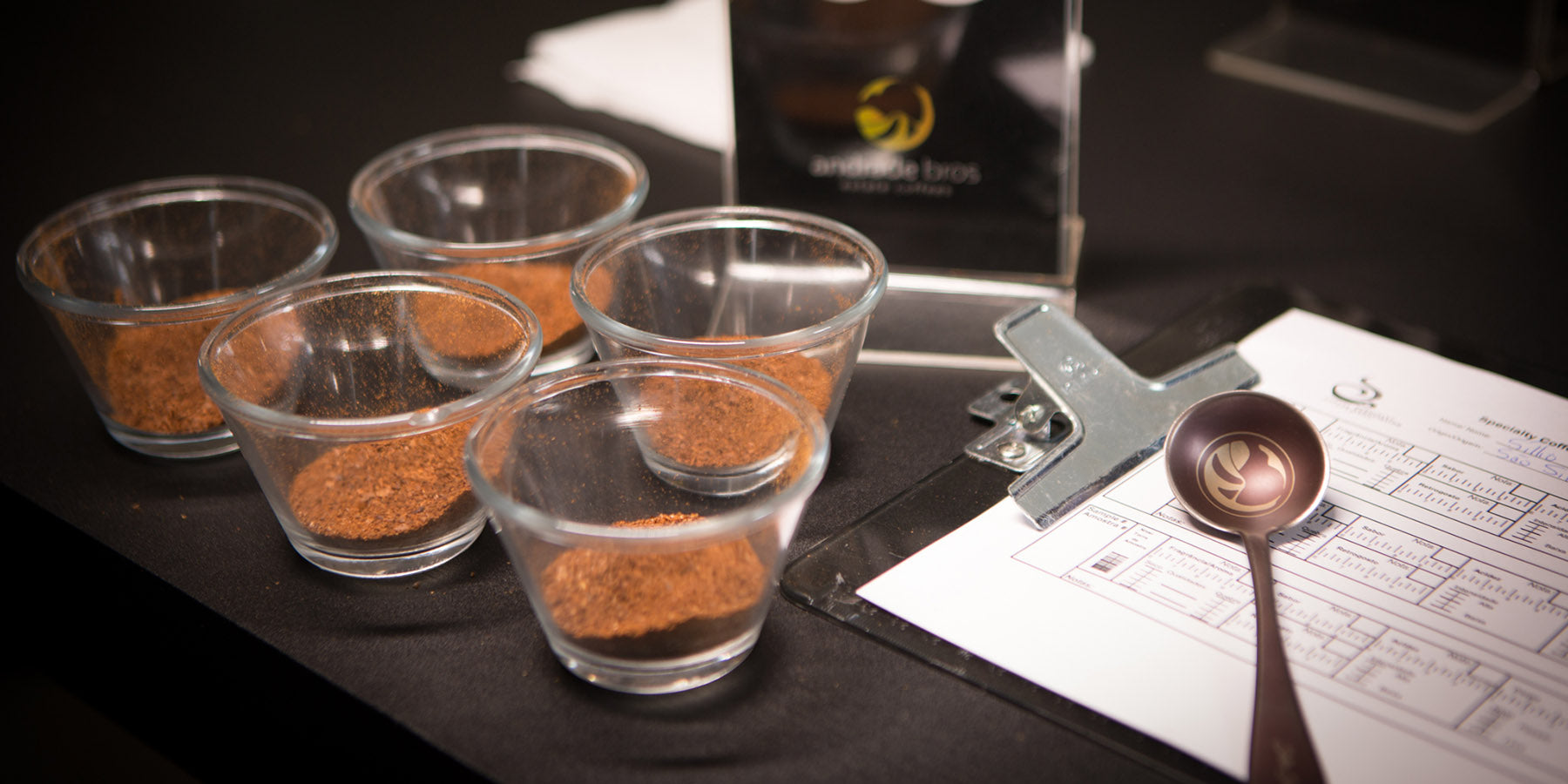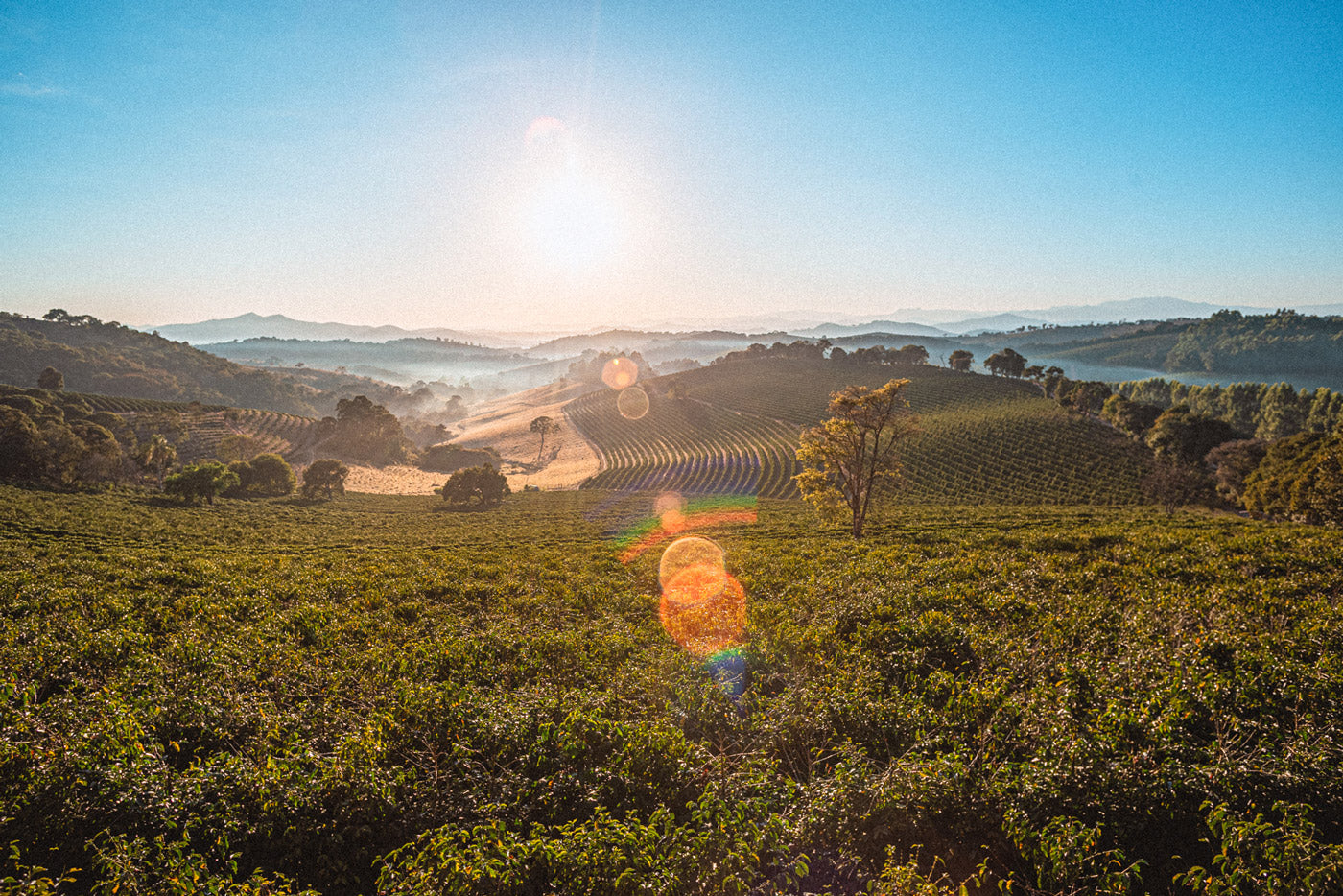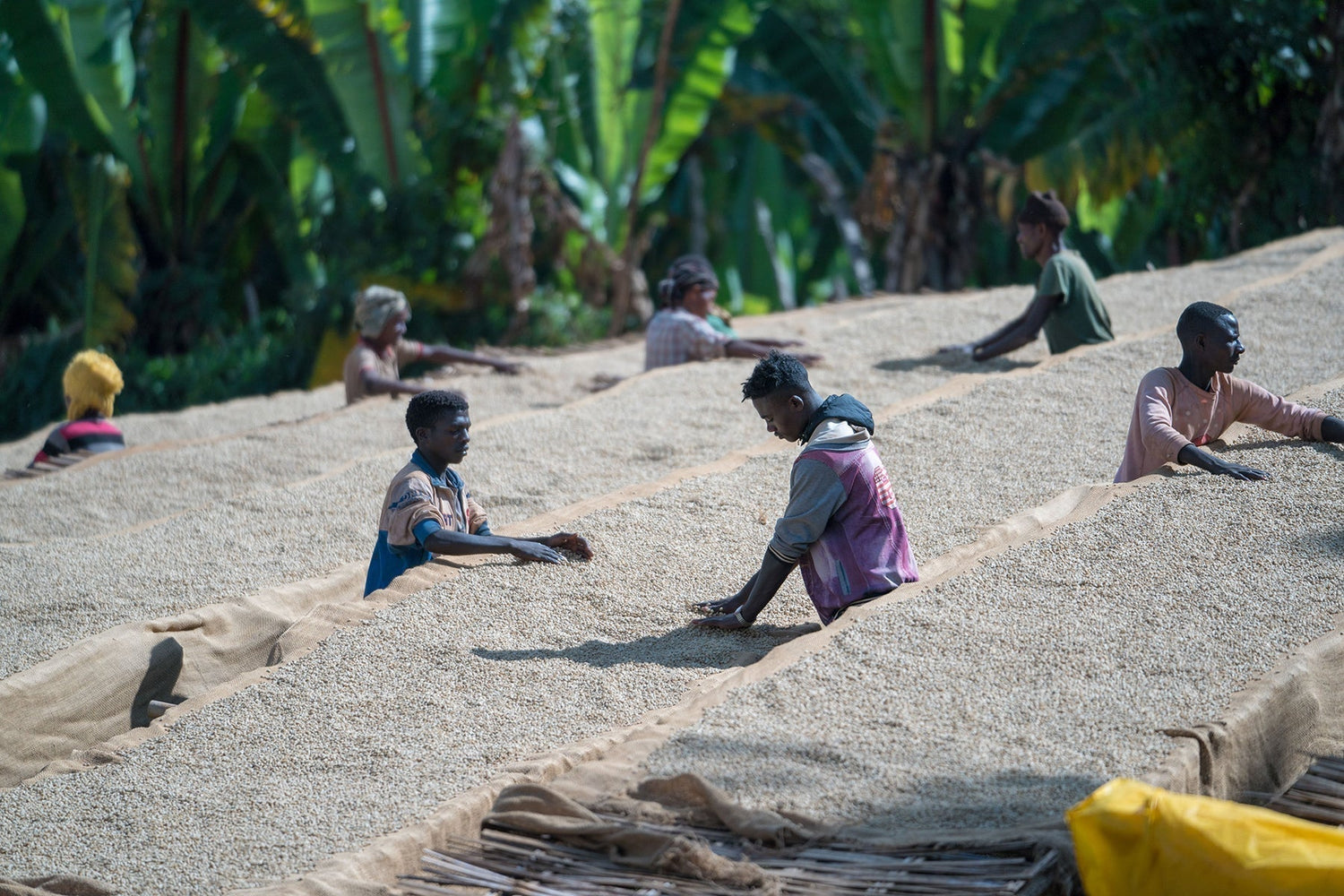Wine, beer, cigars, cheese – there are many sommeliers. And there are also sommeliers for coffee: the Q-graders. There are currently around 8,500 of them worldwide. In the following sections, we will explain how hard the training to become a Q-grader is, what the coffee sommeliers do and how you can become one (if you want to).
What is the Q-Grader?
As already mentioned, the Q-Grader is the sommelier of coffee. Not only can he taste the aromas of coffee and give recommendations to customers, he is also an evaluator of raw and roasted coffee beans. The Q-Grader program of the Coffee Quality Institute , or CQI for short, is the world's most renowned coffee sensory training. Candidates go through a very demanding training and examination program. In 20 (in words: twenty) exams, they prove their ability to evaluate coffee sensorially and to identify and evaluate defects in green coffee (unroasted) .
Why is it called that?
The Q in Q-Grader simply stands for coffee quality. The aim of the CQI is to create uniform standards for the evaluation of coffee and to establish these around the world. The desired harmonization of the classification of coffee qualities should lead to more transparency - especially for the end consumer. Just like the Michelin stars for restaurants or the Falstaff points for wine, etc. As a consumer, you can then simply rely on the point rating of coffee by Q-Grader. In addition, the consistent enforcement of these standards can also be expected to lead to a general improvement in the types of coffee assessed in this way: the experts sort out inferior beans or batches in a timely and complete manner, so that only high-quality coffee goes on sale.
Q-Graders worldwide
There are currently over 8,500 trained people worldwide. 43 in Germany, 74 in Switzerland and 7 in Austria, just to represent the DACH region. Certification is valid for 36 months and can/must then be renewed if you want to continue to evaluate coffee according to these standards. The coffees are measured by trained experts using standardized cupping and evaluation criteria. And they are the same worldwide: a Q-grader in Malaysia gives exactly the same and neutral assessment as one in Australia, Afghanistan, South Africa or Italy . They rate the quality and intensity of acidity, body, flavor and aroma of a coffee with a number between six and ten. Coffees that are rated with more than 80 points are considered specialty coffee.
Q-Grader and Specialty Coffee
As already mentioned, Q-graders are the people who can turn "normal" coffee into specialty coffee. They evaluate the coffee being tasted based on general and objective criteria. This results in a score between 60 and 100 points. The higher this number, the better the coffee. The exact ranking is as follows:
- below 80 points: no specialty coffee
- 80 to 84.99 points: Very good
- 85 to 89.99 points: Excellent
- 90 to 100 points: Excellent
The three groups with 80 points or more are all specialty coffees in different quality levels.

How to become a Q-Grader
Basically, it doesn't take long: three days of classes, three days of exams. So just under a week. But most people who want this certification already have many years of experience in the coffee business: as a barista, roaster, importer, coffee farmer, etc. It's not like you wake up in the morning and say "Today I'm going to be a Q-grader." After all, you have to prove your ability to evaluate roasted and green coffee in 20 exams. But you don't need any experience or previous training to sign up for one of the courses offered around the world.
What do you have to be able to do?
Currently, to qualify for a license, one must pass 20 tests. The candidate's palate is put to the test with cupping tests, sensory tests and triangulation tests. Students must also classify and identify some of the acids found in coffee (citric, malic, acetic and phosphoric) and recognize different roast levels and aromas in roasted coffee. There is also a green coffee grading test and a general knowledge test.
The examination sequence in detail
To obtain a Q-grader license, you must pass all 20 exams. However, if you fail, you can retake the exams twice within 18 months.

General coffee knowledge
It is assumed that you know the contents of the SCA manuals. The content revolves around water quality, cupping coffee, brewing methods, coffee preparation, etc. In the test, you have to answer 100 questions about these and other areas of coffee.
Sensory tests
In three different tests, the candidate must identify and evaluate salt, acidity and sweetness in solutions. In two of these tests, you must identify and rank three solutions each, and in another you are given mixed samples in which, for example, the sweetness of sample 1 is combined with the salt of sample 2, and the candidate must find this out and name it.
Cuppings
The participants have to demonstrate their cupping skills in four cuppings and six coffees from four groups have to be correctly evaluated in one coffee each. The four groups include:
- Washed Milds (Central America)
- African coffees
- Asian coffees
- Naturally processed coffees
Olfactory abilities
Olfactory means relating to the sense of smell. When it comes to smell, there are four tests, each with two parts. The aim here is to identify and classify the different aromas of "Le nez du cafe". The aroma set contains 36 different aromas.
Triangulation tests
No, you don't have to track down anyone's cell phone. But you do have to find or discover something. There are six sets with three cups of coffee each and the candidate has to taste and name a different cup.
Organic Acids Test
Coffee also contains acids. Four of these acids must be identified by the candidate: acetic, malic, phosphoric and citric acid
Arabica Green Coffee Rating
You have to sort and evaluate 350 g of green coffee. You have to note down, count and evaluate errors and ultimately give the coffee a grade.
Arabica Roast Coffee Rating
The same applies to the roasted coffee test as in the green coffee test: In 100 grams of roasted coffee, you have to identify defects and then evaluate the coffee.
Roasted Sample Identification
You are given four roasted coffees and have to decide which one is “underdeveloped”, “overroasted”, “baked” or “perfectly” roasted.

Where can I work as a Q-Grader?
Anyone who passes the exam has the best chance of finding an exciting and well-paid job at one of the large roasting plants or small coffee manufacturers in their country (or another country). Q-graders also work as professional coffee tasters in export and import. They have a key role, as they report the quality of the coffee back to the coffee producer and also provide information to potential buyers. The Q-grader's assessment is a key factor in determining the selling price of a green coffee. As mentioned, there are currently around 8,500 Q-graders worldwide. You can find a list with names and a search function in English here . There are now also ratings for Robusta beans, but these people are called R-graders.
In real life
Germany currently has 43 Q-graders, while Switzerland, although much smaller, has 74. This shows that coffee plays a big role in Switzerland. Worldwide, there are a good 8,500 trained people who provide their Q-grader services in small and large companies.
The Arhuacos also have a
Even the Colombian natives of the Sierra Nevada de Santa Marta, the Arhuacos, have a Q-Grader . They don't want to rely on chance that every coffee they make is good. They need a person who is intensively involved in quality assurance and quality control. They also create regional blends and original cup profiles for the region. The Arhuacos' company, ANEI Coffee , is one of our partners from whom we source the best Colombian coffee.

Conclusion
Training to become a Q-grader is not the easiest. You need a lot of experience and, above all, a very fine palate. However, people trained as Q-graders make a huge contribution to ensuring that there is a global quality standard for coffee, both roasted and raw, and that everyone can communicate about this standard in a uniform manner. It is also an interesting field of activity for coffee enthusiasts, and one that will certainly become even more important in the future. The aim is to sell very high-quality coffee all over the world. This is something that pleases the end customer, and it also ensures or improves – with direct trade and similar sales channels – the quality of cultivation and the standard of living of the coffee farmers.


